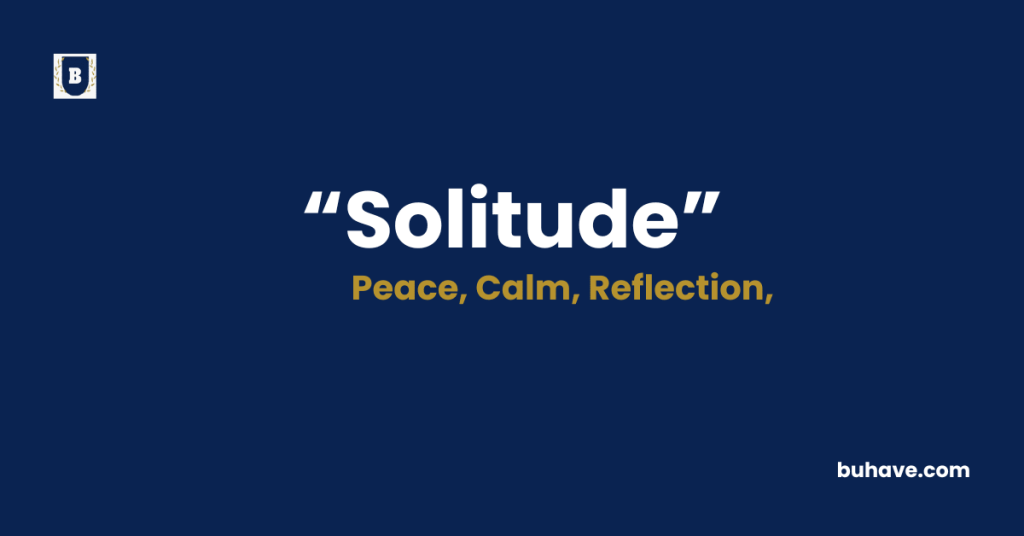The word ‘Solitude’ (Noun) refers to the state of being alone, often by choice, and can be experienced as peaceful or reflective. In this guide, you’ll explore its complete meaning, definition, examples, etymology, synonyms, antonyms, and practical uses in everyday language.
Solitude Explained in Depth
A complete and detailed guide to the word ‘Solitude’ including meaning, definition, examples, etymology, synonyms, and antonyms.
Meanings of Solitude
Solitude refers to the condition of being alone, away from others. It can suggest peacefulness and introspection, such as choosing to spend time alone to think, create, or rest. While it often carries a positive, tranquil tone, it can also imply loneliness when not desired.
Definition
Solitude is defined as the state or situation of being alone, especially when it is peaceful and voluntary. It involves physical or emotional separation from others and is often used to describe a quiet, undisturbed state.
Etymology
The word “solitude” comes from the Middle English solitud, borrowed from Old French, and ultimately from Latin solitudo, which means “loneliness” or “being alone,” derived from solus, meaning “alone” or “only.”
Example Sentences
- She cherished her morning solitude with a cup of coffee and a good book.
- The cabin offered perfect solitude, far from the noise of the city.
- In his solitude, he found clarity and inspiration for his artwork.
- Sometimes, solitude is needed to recharge and reflect.
Solitude Synonyms
- Seclusion
- Isolation
- Aloneness
- Privacy
- Retreat
- Silence
- Stillness
- Withdrawnness
- Loneliness
- Quietude
Solitude Antonyms
- Company
- Socialization
- Community
- Companionship
- Togetherness
- Interaction
- Engagement
- Presence
- Crowd
- Affiliation
FAQs about Solitude
Here are some frequently asked questions (FAQs) about the word “Solitude”
1. Is solitude the same as loneliness?
No. Solitude is often chosen and enjoyed, while loneliness is an unpleasant feeling of being alone or disconnected from others.
2. Can solitude be beneficial?
Yes. Solitude can promote creativity, mental clarity, emotional rest, and personal growth.
3. Is solitude always positive?
Not always. While it can be peaceful and enriching, solitude can become negative if it leads to social isolation or emotional distress.
4. Who benefits from solitude?
People who need time to think, create, recharge, or reflect often find solitude valuable, such as artists, writers, and introverts.
5. How can I embrace solitude?
Create quiet spaces, set aside alone time, and practice mindfulness or journaling to enjoy solitude more fully.

















